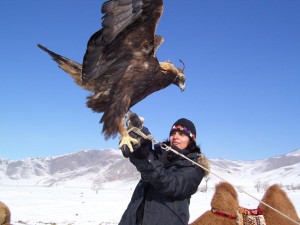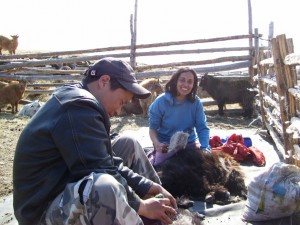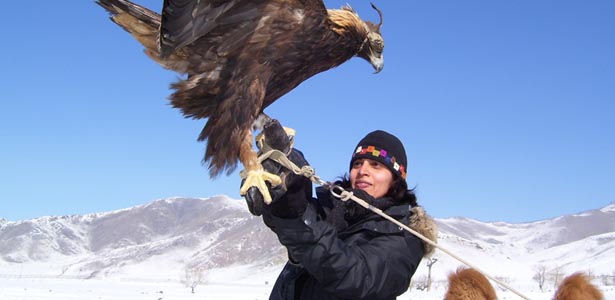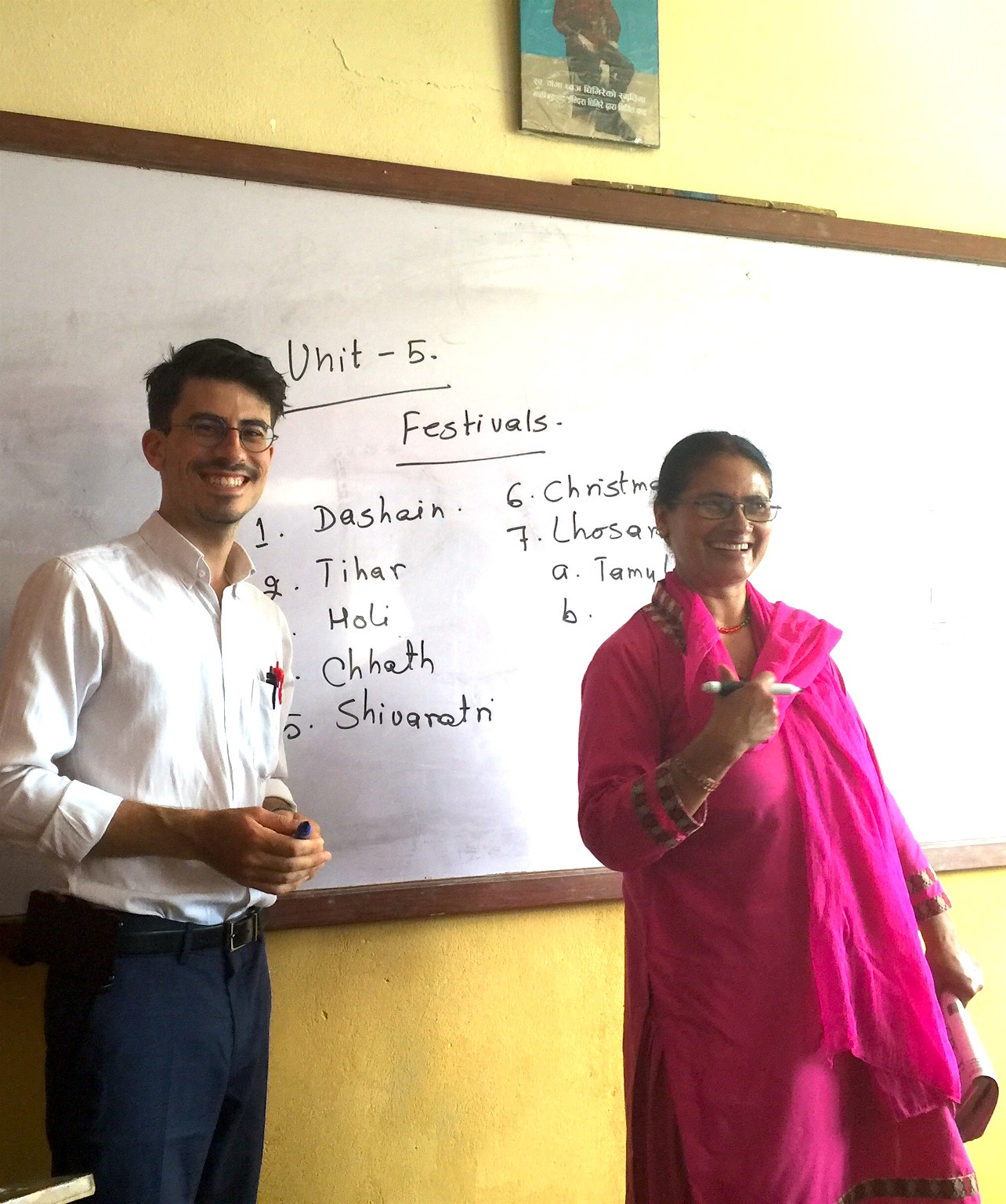
Shebana Coelho, 2006-2007, Mongolia, experiencing adventures in eagle wrangling on the road to Terelj, outside of Ulaanbataar.
I know there was a time when Mongolia didn’t feel like another home, before I went there on my Fulbright grant, before 2006. But I can’t remember it. Every time I speak Mongolian, it feels like a homecoming. I spoke it last on December 21 at the Embassy of Mongolia in Washington, DC. I said, “Sain bain uu, bi Shebana baina,” “hello, I’m Shebana,” to the group of about seventy people who had gathered to hear my multimedia presentation about being on the move in Mongolia. It was co-organized by the Embassy of Mongolia and the Mongolian Cultural Center, based in Arlington, Virginia.
I went to Mongolia looking for nomads, I said in my presentation, but I also found the city, Ulaanbataar, Mongolia’s capital where I took intensive language lessons. My time in Mongolia ranged between learning the language in the city and living with nomadic families in the “yag hoodoo,” the countryside proper. Each season, I went to a different Mongolian province: Eastern Mongolia, during calving season in the spring; the green north, where I learned sheep herding in the summertime; the Gobi Desert, for autumn adventures in camel herding; and Western Mongolia, with Kazakh families during the winter. I recorded nomadic families at work, rest, and play, and returned with tons of audio and photos including interviews, ambient sounds, and songs.

Shebana Coelho, 2006-2007, Mongolia, in Hentii Province in the spring, brushing cashmere from goats.
It takes a while to digest such a big experience and organize a huge multimedia archive. The first program I’ve produced as a result of my Fulbright research is called On the Move in Mongolia, sound portraits of some of the remarkable Mongolian women I met. It was produced for Outer Voices and broadcast in New Mexico, where I live, on a show called Woman’s Hour on KUNM. The Shelley and Donald Rubin Foundation and the Lucius and Eva Eastman Fund gave me grants for the program and I’ll be giving more presentations in the future. Next up is Stories from The Steppe, a series of multimedia portraits that present small moments in Mongolia: a young boy goes sheep herding, an old man recounts a long journey; a group of desert nomads describe how the camel lost its antlers. Putting together these programs feels like my way of giving back to Mongolia, sharing the stories of people who have come to feel like family.
I ended my Embassy presentation with an old Mongolian song. Minii aav aduuchin huun. My father is a horseman. Minii aav duuchin huun. My father is a singer. People in the audience sang along. Once again, I journeyed backwards. That was one of the biggest surprises in Mongolia – witnessing how much Mongolians sing: everywhere and anywhere, on horses, in the streets, out loud and louder, pop songs and traditional songs, bogino duu and Urtiin duu, with their long quavering notes that soften the heart.
“Ih bayarlalaa,” I said as I ended the song. Thank you so much.
The wide open steppes of Mongolia had been on my mind for years – as a child growing up in India, and later as a teenager when I moved with my family to the United States. I never imagined that I would have an opportunity to go there, let alone stay for so long and find connections in a different culture and language. But the Fulbright Program made that possible. It helped make faraway feel like home.
For more information about Shebana Coelho’s Fulbright research in Mongolia, please visit her Mongolia and personal websites.




5 Comments
You have the ability to make every place feel like home, and to be at home wherever you land. I think we need this flexibility and adaptability, aside from the tradtionally nomadic life. My stay-at-home soul is nourished by your sallying forth.
Thanks, Joan – words of praise from the Poet Laureate of Santa Fe are always appreciated! 🙂 But seriously, the reception I received in Mongolia was remarkable- everyone who goes there is struck by the gracious hospitality of the place and people.
You are such a moving writer! I have goosebumps! I am really glad you enjoyed Mongolia with its oddities and surprises.
i am glad that you had great time in Mongolia. I’m a Mongolian and came from western Mongolia named Uvs province that next province of bayan-ulgii. i see that you learned mongollian, yeah. if you have time, shall we speaking mongolian in the messenger. also, if you go there again, you have to visit my province. it will give great memory.
My name is Batjargaliin Gerelt-Od. Do you remember me.